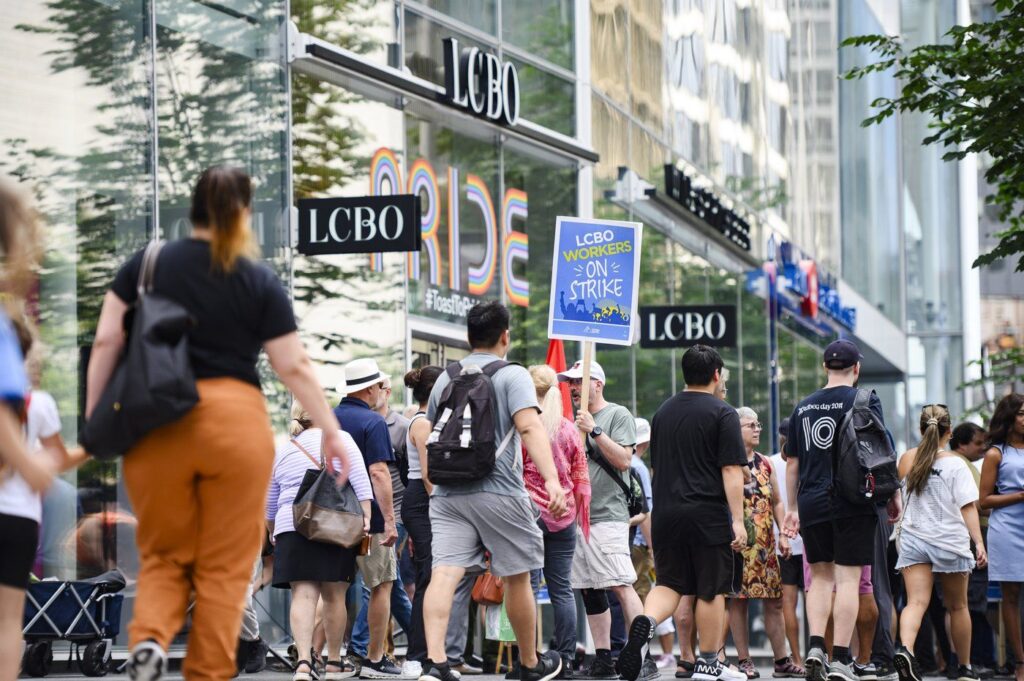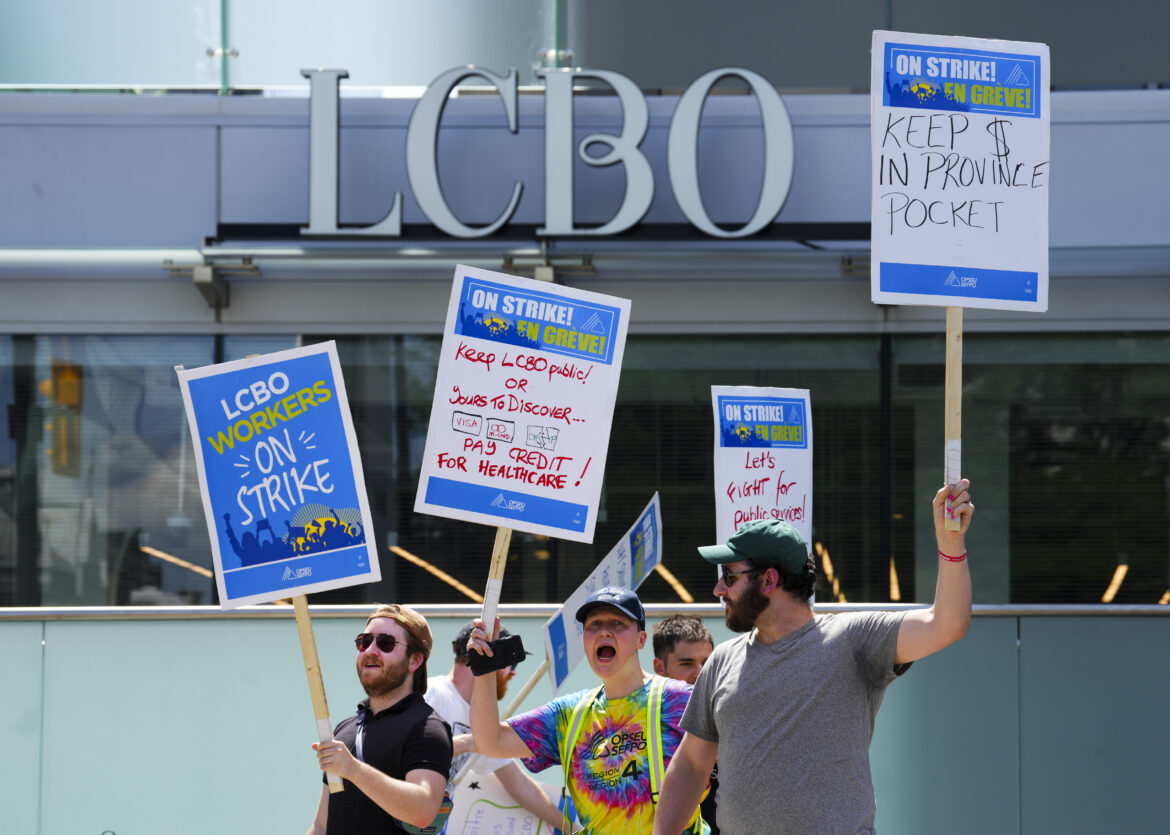More than a hundred employees with Ontario’s primary liquor retailer took to the streets of downtown Toronto on Saturday to rally public support for a historic strike that’s shuttered most stores for at least two weeks.
Thousands of workers with the Liquor Control Board of Ontario walked off the job on Friday after negotiations between the employer and their union failed to produce a new deal, launching the first such labour disruption in the organization’s history.
The Ontario Public Service Employees Union has said workers are concerned by Premier Doug Ford’s plan to expand the alcohol market, adding existing plans to allow convenience stores and all grocery stores to sell beer, wine and ready-to-drink cocktails could result in job losses. OPSEU is also advocating for wage increases and more full-time positions, saying 70 per cent of members currently hold part-time and casual roles.
Store clerk Uriel Barnett, who attended Saturday’s rally, said he’s passionate about his work but wants a fair deal for himself and his colleagues.
“We’re fighting for our job security, and we’re also fighting to make sure that we serve the public,” said the 59-year-old.
“I love my job. I don’t want the premier of this province to just give away taxpayers’ money to his friends at big box stores.”
Barnett said he’s spent the last two years as a casual worker — a category of employee he said has no guaranteed work hours and a lower pay scale compared to permanent, full-time employees.
“Sometimes you might get some shifts, sometimes you might not get some shifts. We’re at the mercy of the schedule,” he said.
The LCBO said about half of casual workers are guaranteed at least 1,000 working hours a year. It said its most recent proposal responded to a number of the workers’ demands but the union did not make a counter-offer.
“We remain hopeful that we can quickly reach an agreement that is fair to our employees, while enabling the LCBO’s continued success in a changing marketplace,” it said in a statement emailed Saturday.

At least 150 people attended the rally, juggling umbrellas to ward off the rain with signs urging the government to keep liquor sales public.
Retail worker Chris Stefan said the expansion of alcohol sales will reduce the $2.5 billion the LCBO contributes annually to provincial coffers, which he argued will divert funds from public services like health care and education to private corporations.
“That’s money for building roads and hospitals that Doug Ford wants to privatize and give to billionaires instead,” said Stefan, who’s in his early 30s
Finance Minister Peter Bethlenfalvy issued a statement on Friday saying the government is “more committed than ever” to its plan.
“We are particularly disappointed that OPSEU is opposed to giving people in Ontario the choice and convenience of buying readymade drinks, like coolers and seltzers, in grocery and convenience stores,” he wrote.
The first step of the expansion plan is set to start in less than a month, when grocery stores that already sell beer and wine will be able to sell ready-to-drink cocktails. Convenience stores can start selling beer, wine, cider and ready-to-drink cocktails on Sept. 5. The Alcohol and Gaming Commission of Ontario said Friday it has already issued 2,813 convenience store licences.
Anneka Kindrachuk, a casual worker with the LCBO for the past five years, argued privatizing the alcohol market could lead to increased sales to intoxicated or underage consumers, as LCBO employees receive training to sell alcohol responsibly.
“We have to make a lot of judgment calls on who’s fit to be served and who’s not. A big part of the job is social responsibility,” said the 24-year-old.
“If (alcohol sales) are privatized, there might be more emphasis on profit. So, they’ll be serving intoxicated people. I don’t think that’s good for our health and for our society.”
LCBO retail locations are expected to stay closed for at least 14 days, though convenience outlets in smaller communities will remain open and online ordering is available with product limits in place.






